Does Cannabis Allergy Exist and How to Identify It's Symptoms

- 1. What are the symptoms of marijuana allergy?
- 2. How long does it take until marijuana allergy shows its symptoms?
- 3. Cannabis allergy caused by exposure and sensitization
- 4. What are the risks of cannabis allergy?
- 5. How is cannabis allergy diagnosed?
- 5. a. Skin tests
- 5. b. Blood tests
- 6. How to treat a cannabis allergy
- 7. The bottom line
Ever since cannabis gained more popularity in the world, for both recreational and medical purposes, more registries of cannabis allergies have been reported around the globe.
Yes, just like with any plant or flower, you can develop an allergic reaction to marijuana as well. According to the American Academy of Allergy, Asthma and Immunology1, AAAAI, a person can develop an allergy or allergic reaction to cannabis after exposing themselves to the plant in the following ways:
- Smoking marijuana;
- Touching marijuana;
- Eating marijuana;
- And inhaling pollen in the air.
In fact, research on the subject suggested that particularly cannabis Sativa strains could be especially allergenic than other strains and that people with allergies to cat dander, mold, dust mites, or plants are more likely to develop an allergy to marijuana.
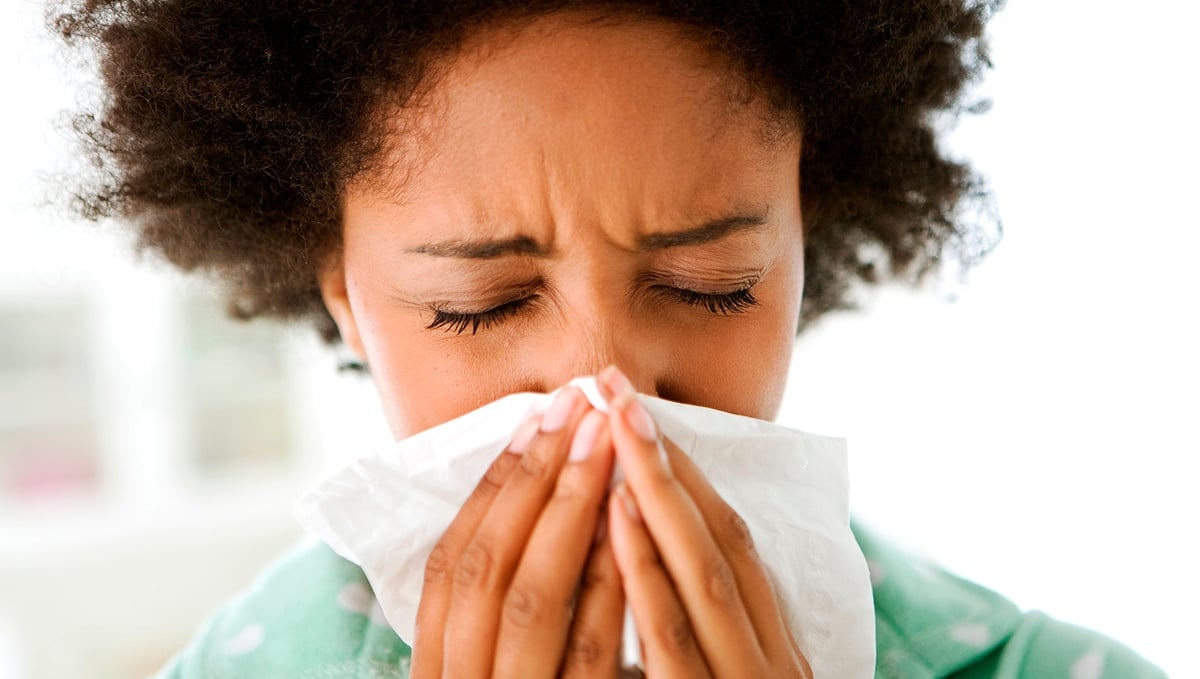
Let's check what are the symptoms, treatments, and prevention methods for cannabis allergy.
1. What Are The Symptoms Of Marijuana Allergy?
So, if you're reading this, chances are you or a close relative has developed the symptoms of what could be a marijuana allergy. An allergy to cannabis can look very much like other common allergies, with symptoms similar to the ones of a seasonal allergy. The signs and symptoms of an allergy to cannabis include:
| Where | What |
|---|---|
| Throat | A dry cough; sore or itchiness; nausea. |
| Nose | Congestion; runny nose; sneezing. |
| Eyes | Itchiness; red or watery eyes. |
| Skin | Contact dermatitis: blisters; dry skin; hives; itchiness; red, inflamed skin. |
Make sure that if you present any of these symptoms you've checked that they weren't caused by some other external factors than marijuana and you haven't mistaken cannabis as the allergic source.
Lastly, a severe allergy to marijuana can cause the not so common allergic reaction called anaphylaxis. It's important to be able to recognize the symptoms of anaphylaxis given it can be a life-threatening condition and occurs within the first seconds or minutes after the exposure to the allergens.
The symptoms of anaphylaxis include:
- Difficulty breathing;
- Dizziness and fainting;
- Itchiness and flushed or pale skin;
- Low blood pressure;
- Nausea and vomiting;
- Swollen tongue or throat;
- Weak and fast-rate pulse.
When not attended in time, anaphylaxis could lead to a coma or even death, so getting urgent medical attention is essential if you or someone shows any of the symptoms listed above.
2. How Long Does It Take Until Marijuana Allergy Shows Its Symptoms?
The signs and symptoms of an allergy to marijuana may come on immediately after a person has been exposed to the plant, or between the next 20 or 30 minutes after the exposure to the plant.
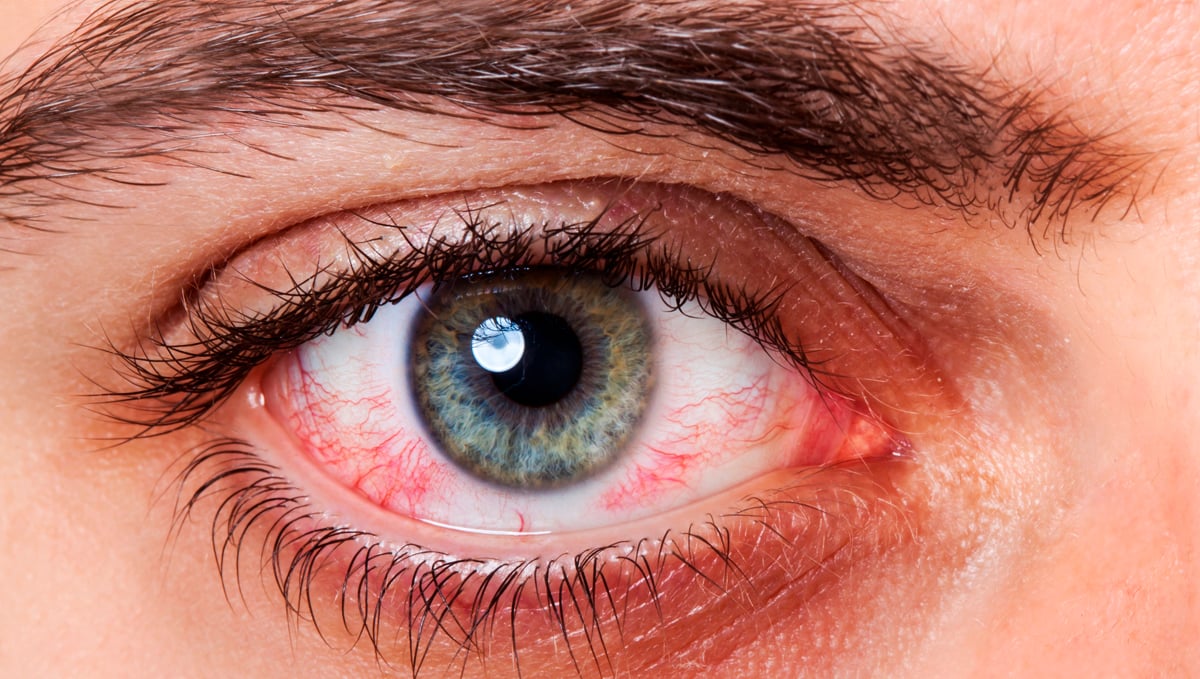
However, in other cases, the symptoms may not begin to show before an hour or more, depending on the method of consumption. Normally, when a person has taken an oral method of marijuana intakes, such as edibles or cannabis pills, the allergy signs will take longer to become visible.
Once you have noticed the symptoms, to stop them from getting worse you should immediately get away from the plant, stop touching and consuming it.
3. Cannabis Allergy Caused By Exposure And Sensitization
Sensitization means, according to the dictionary, the quality or condition of responding to certain stimuli in a sensitive manner; or, the action or process of making an organism abnormally sensitive to a foreign substance.
With cannabis allergy, sensitization is the phenomenon that takes place when the body develops an allergy following repeated exposure to this specific allergen. This would normally happen when you live in areas where cannabis plants are cultivated, therefore the risk of developing allergic reactions to marijuana is increased.
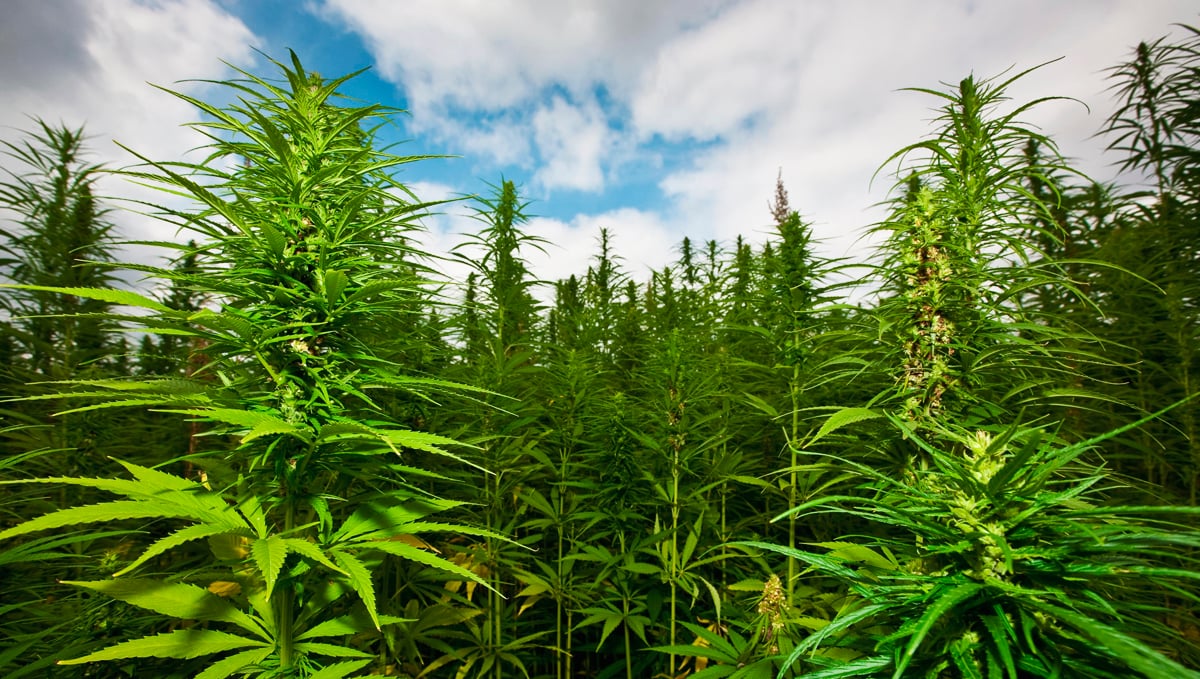
While the pollen responsible for causing the allergy is normally produced by male plants, female plants with hermaphroditic male flowers can spread particles through the air as well. The bad news is, sensitization could also be associated with the repeated consumption of marijuana.
A study carried by Spanish researchers who administered skin-prick tests to patients in an allergy clinic found that, on average, previous cannabis consumers reacted allergically more often than those who didn't smoke. Furthermore, those who reported they engaged in the frequent use of marijuana showed to react more than those who consumed less or no cannabis at all.2
As the cannabis industry makes its way to the global legalization for its use, this translates into larger-scale cultivations and easier access which at the same time means heightened exposure to potential allergens. However, this also makes way for more research into cannabis allergy awareness and therefore new treatments and prevention methods.
4. What Are The Risks Of Cannabis Allergy?
Besides from anaphylaxis, the main risks related to cannabis allergy are linked to the development of cross-reactivity with other allergens.
Cross-reactivity is what happens when the proteins in the marijuana plant, such as pollen, resemble the ones in another plant. When this occurs, an allergic reaction might then take place when a person gets into contact with similar proteins somewhere else.

Some foods that have proteins resembling the ones of cannabis', and which may therefore cause allergic reactions in people who had developed an allergy to marijuana include nuts such as almonds and chestnuts; and fruits and vegetables, like apples, bananas, grapefruits, peaches, tomatoes and eggplant.
5. How Is Cannabis Allergy Diagnosed?
An allergic reaction to cannabis is diagnosed just the same as any other type of allergy. Doctors perform blood and/or skin tests on the patient to diagnose the allergy.
Skin Tests
In the first instance, the doctor will first take a look at the person's medical history to check for previous allergies antecedents or any data that might be of importance. Then, a physical examination might take place to check for signs and allergy symptoms.
When necessary, a skin prick test could be required. Such a test isn't too invasive, it's harmless and will only take just a couple of days until the results come back.

During the skin prick test, the doctor will use the diluted allergen on the skin's surface, such as cannabis, in this case, using a needle to trigger the allergy on the patient. Afterward, within the next 15 minutes, the professional will check for any signs of the allergy developing in said place, such as a red bump or wheal, itching, and redness appearing in that area.
Another common skin test is an intradermal skin test, which means the doctor might inject some of the diluted allergens into the surface of the skin using a needle.
Blood Tests
When skin tests don't show any signs of the allergy, a blood test might take place to identify if a person is allergic to marijuana.
The process is simple and involves a fast blood sample being drawn, which will then be tested for antibodies to cannabis. When a person's results show more antibodies in the blood than expected, this means they are more likely to be allergic to marijuana.
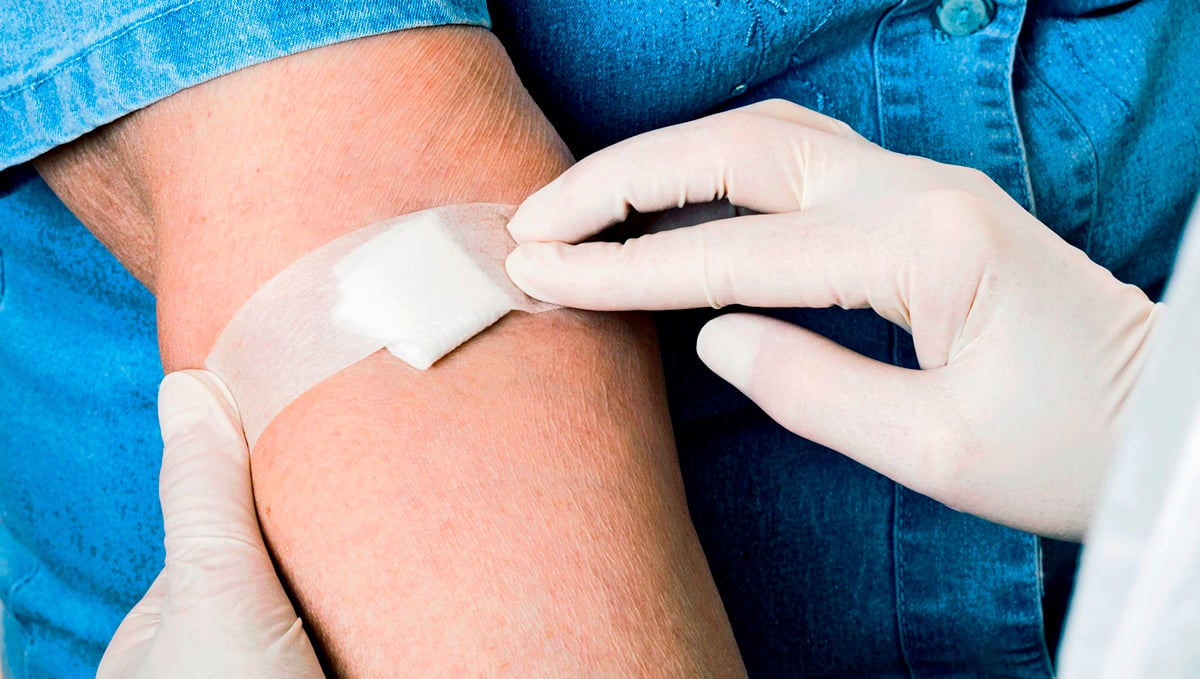
Usually, blood tests are more effective and they only involve a single needle prick. Besides, blood tests are less likely to be affected by other medications, however, the results usually take longer than the ones of skin tests, and they tend to cost more as well.
6. How To Treat A Cannabis Allergy
There are no formal cannabis allergy treatments available at the moment. No medications in the market are aimed directly for the treatment of such a condition, however, a person can take antihistamines in order to reduce the symptoms and discomfort caused by the allergy.
Some types of pollen allergies are indicated to be treated with a prescripted allergy shot that reduces a person's sensitization to the allergens present in the substance. However, there still aren't allergy shots specifically made for marijuana allergy, so check with a doctor before you try any other medications.
Due to the lack of treatment options for cannabis allergy, those who show the symptoms of this condition should try to avoid any contact with the plant. This means not smoking, eating edibles, or even touching the plant or any topicals in order to prevent the allergy's symptoms.
When a person has shown a severe allergy to cannabis such as the symptoms of anaphylaxis, they should always carry around an epinephrine injection on them in case of accidental exposure.
7. The Bottom Line
Cannabis allergy could be considered a rather new allergy, or new in the sense that there's still lots to discover on the subject. Therefore, if you have noticed any of the signs and symptoms listed above, make sure to take note and take action if they seem to escalate fast.
If it turns out you do have a marijuana allergy, we're very sorry to hear that and we hope that science can find a solution for you as soon as possible. In the meantime, take care of yourself and avoid contact with the plant.
MEDICAL DISCLAIMER
This content is for educational purposes only. The information provided is derived from research gathered from external sources. You should always consult with a professional before taking any important decisions.
EXTERNAL REFERENCES
- "Marijuana Cannabis Allergy", American Academy of Allergy, Asthma and Immunology, AAAAI. September 2020.
- "Prevalence of sensitization to Cannabis sativa. Lipid-transfer and thaumatin-like proteins are relevant allergens", Carlos H. Larramendi, M. Ángeles López-Matas, Angel Ferrer, Angel Julio Huertas, Juan Antonio Pagán, Luis Ángel Navarro, José Luis García-Abujeta, Carmen Andreu, and Jerónimo Carnés. July 2013.








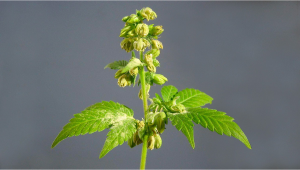
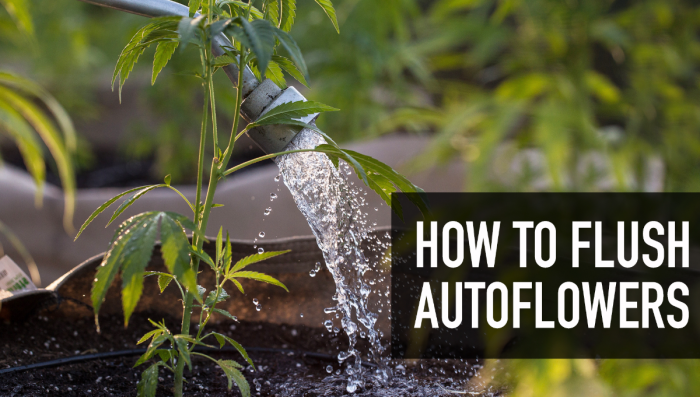

Comments